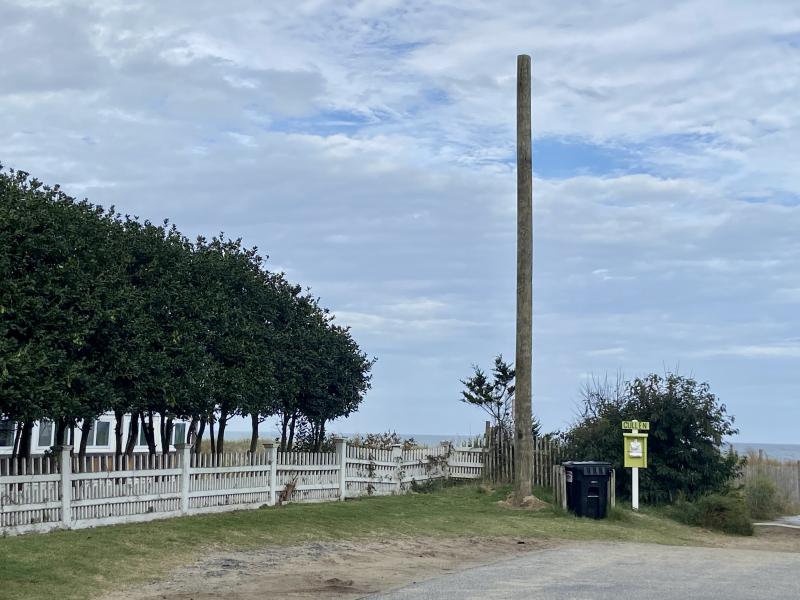Dewey commissioners refer 5G ordinance to planners

Dewey Beach commissioners took a step toward regulating wireless facilities with a public hearing and unanimous vote Nov. 6 to refer a draft ordinance to the planning and zoning commission for a subsequent hearing.
Town Attorney Fred Townsend said state law requires a two-hearing process with recommendations from the planning commission to change zoning law. Once passed, he said, the ordinance will be retroactive to mid-October, when it was placed on the commissioners’ meeting agenda.
A series of federal enactments has authorized the placement of facilities in the right of way, Townsend said.
“It has been a little difficult to get our arms around all the different components of the regulation that applies,” Townsend said. “But, pursuant to a 2018 FCC order and litigation surrounding that in other states, it is the case that local governments can regulate these small cell wireless facilities on the basis of aesthetics.”
Regulations must be reasonable, published in advance and can’t discriminate among providers, Townsend said.
“You can’t regulate aesthetics so that you prohibit installation of wireless facilities in all instances,” he added.
Local governments have the authority to manage public right of way, Townsend said, and the town has an agreement with the state that allows construction of driveway entrances off the right of way to be regulated.
“We rely on that agreement also to prohibit residents from constructing impediments or encroachments into the right of way,” he said. “Our jurisdiction can be found both there and the regulations I’ve referred to.”
Townsend said the town’s comprehensive plan, which has the force of law, needs to be examined carefully to ensure aesthetic components are complied with when facilities are installed in the future.
The town’s agreement with the state references beach land and dunes, Townsend said. Wireless providers may say the town lacks authority to prohibit facility installation on the dunes, he said, but it would be incumbent upon providers to persuade the town that placement on the dunes is necessary.
“Which would be hard to believe, but I don’t have any of the science at my fingertips that would enable me to evaluate a claim like that,” Townsend said. “To my knowledge, there's no proposal that any of the poles be placed on the dunes or east of the dunes at the present time, but it's my recommendation that we include that prohibition for the time being.”
Interim Town Manager Jim Dedes said he believes legislation allows poles to be restricted in the right of way when they become a public safety issue. He also said a clause in the agreement with Delaware Department of Transportation gives the town the right to preserve beach lands.
Mayor Dale Cooke said the biggest worry he has is companies saying they can’t collocate equipment and need to install additional poles, creating the look of a picket fence along the beach.
AT&T spokesperson Joe Divis said his company looks to use existing infrastructure for wireless facilities, but the location depends on network engineering and where service needs support.
“There is a balance that can be struck so community sensitivities are preserved,” Divis said, “but we are allowed to invest in connectivity in Dewey Beach and serve our customers and their needs. Hopefully it creates good economic development and a commercial environment for the town.”
Commissioner David Jasinski said he wanted planners to consider comments from residents, which include requiring poles not be within 50 feet of beach egress to allow emergency responders access, burying utility lines underground, placing facilities on the same side as other utilities and limiting pole height to 35 feet.
Updated 1:30 p.m., Nov. 16 - Delaware Department of Natural Resources and Environmental Control Media Relations Manager Michael Globetti stated Nov. 16, “In addition to the town, the Department of Natural Resources and Environmental Control’s Division of Watershed Stewardship regulates construction on the beach and dunes under the state’s Beach Preservation Act and the ‘Regulations Governing Beach Protection and the Use of Beaches.’ Under these regulations, any construction seaward of the restricted Building Line requires a permit from DNREC, and permit applicants are required to minimize impacts on the beach and dunes.”




















































